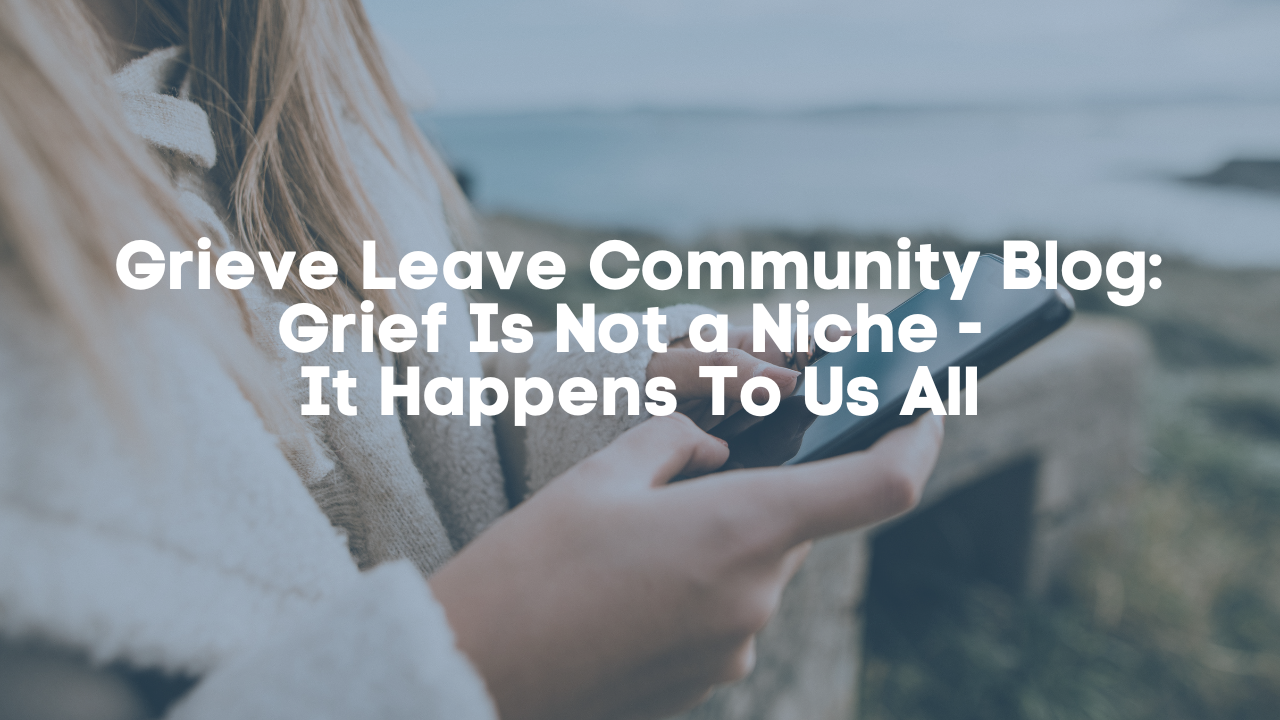Grieve Leave Community Blog: Grief Is Not a Niche - It Happens To Us All
Jun 22, 2025
Grief Is Not a Niche - It Happens To Us All
How Text-Based Grief Support Can Improve Public Health
By Emma Payne, CEO of Help Texts
Why I Started Help Texts
In 2018, my husband died by suicide. The grief was overwhelming. Frightening, in fact. Friends and family wanted to help, but they didn’t know how. I was lucky to have people who showed up, but grief was still a lonely, confusing journey, and it was hard to find support that made sense for me. When Barry died, I had 20 years’ experience building web and mobile applications to improve social engagement and connection. I’d built tools for caregiver coordination, youth voter registration, and suicide prevention, and saw a huge gap in the availability of grief support.
A few years later, after another funeral, I started wondering whether my background in mobile development could be put to work. On my flight home to Seattle, I mapped out an idea for text-based grief support. That’s how Help Texts began—and I’ve never looked back.
Today, Help Texts delivers clinically sound grief support in all 50 U.S. states, across 44 countries, and in 27 languages. Our messages are written by world-leading experts and personalized based on age, relationship, cause of death, and time since loss. Support is delivered for a full year. We were the first in the world to publish research on grief-informed texting, and we consistently see >95% satisfaction rates, even higher from men, who are often underrepresented in grief care programs.
Texting is Smart Public Health.
Text messaging is already used in public health campaigns for everything from smoking cessation to vaccine reminders. It’s cost-effective, has a high read rate, and is scalable. So it makes perfect sense that text-based grief support works too. Help Texts’ published data shows that 95% of subscribers find our text messages helpful in their grief and that text support also makes them feel more supported. And our global, multilingual platform allows us to reach people who might otherwise be left behind.
Still, bereavement doesn’t get anywhere near as much as funding as it should, and what little funding there is continues to pour into expensive programs with limited reach. One reason for this is that our current systems anchor on the idea that all people need therapy, which is expensive to deliver. In fact, however, only 10% of grievers need therapy (Aoun et al., 2012). The other 90% needs access to adequate community support or care from family and friends. Clinically sound text support for both grievers and their family and friends is a powerfully simple, practical and affordable bereavement intervention that can significantly impact public health.
What We’re Calling For
Grieving people are everywhere. Support isn’t. It’s time for that to change.
We’re asking healthcare systems, policymakers, and funders to stop treating grief like a footnote. Unlike with other public health issues, such as obesity, we know the exact moment when someone becomes bereaved. We know when a death is registered, when a funeral home files paperwork, when Social Security or the IRS reaches out. Vital Records Offices, coroners, and medical examiners all play a role after someone dies. But where’s the grief support?
Federal, state, and county agencies could choose - today - to put clinically sound bereavement care into the hands of every grieving person, right away, when loss happens. They could offer grief support to every grieving family member, when a death is registered, or along with paperwork from the coroner’s office. There are countless touch points to choose from that would help us:
-
Integrate bereavement care into public health planning
-
Fund and scale evidence-based interventions like text-based support
-
Recognize grief as a key moment to intervene—when people are at high risk for negative outcomes, but also open to receiving help
The expertise exists and the infrastructure is in place – we just need the will to utilize it, because no one should have to navigate grief alone when we have the tools to reach them exactly when they need us most.
Ready to see what evidence-based grief support looks like? Help Texts is already delivering personalized, clinically-sound grief care to people in 44 countries and in all 50 states. If you’re a healthcare system, payer or a policymaker interested in scalable solutions, we're here to help. Learn more HERE. And if you’re grieving a loss yourself, you can sign up now for immediate support.
Join the Grieve Leave movement
Share your info to join our Grieve Leave community. You don’t want to miss anything!


